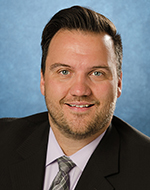Page Content
 This is not necessarily the column I was expecting to write after the United Conservative Party’s founding convention.
This is not necessarily the column I was expecting to write after the United Conservative Party’s founding convention.
The headlines from the UCP meeting focused on the adoption of a motion calling to reinstate parental consent when a student joins a gay–straight alliance. Much will be said and written about the wisdom of that position. But that’s not what I am writing about today.
Another very problematic policy adopted calls for the Alberta Teachers’ Association to be split into a professional college and a separate union. This is a real threat to the profession, but it is also not what I am writing about today.
Instead, I am writing about two decisions made at the UCP AGM that stick out as positive decisions for public education.
In November, the party released draft policy that included a proposal for “equal per-student funding regardless of school choice — public, separate, charter, home, or private.”
Adoption and implementation of this policy would have resulted in a significant funding increase for private schools and a huge funding increase for home schoolers. Currently, public, separate and francophone school jurisdictions receive $6,680 per pupil in base instructional funding, with an additional $1,522 intended to keep grades 1 to 3 class sizes low.
Presumably, this proposal would increase private and home school funding to those levels, amounting to an increase of at least $2,000 per pupil per year for private schools and $5,000 per child per year for home school parents.
Delegates at the convention ultimately swapped out the word “equal” for “equitable” in the policy’s wording. An equitable distribution of scarce education funds is much preferred to equal distribution.
When it comes to home schooling, the cost of delivery of education is significantly lower than it is in traditional environments. Public schools have higher costs associated with transportation, building maintenance and technology, not to mention the requirements for trained professional teachers and a broad system of professional supports. It would not be equitable to provide the same funding to home school parents as is allocated to public schools.
And relative to private schools, it hardly seems equitable to allocate an additional $2,000 per student per year to a school like Strathcona-Tweedsmuir, which charges $21,000 per year in tuition, when that money could better help students at a public school like Cecil Swanson in Calgary.
Strathcona-Tweedsmuir boasts about an average class size of 16 students, 100 per cent university attendance, a 220-acre campus and state-of-the-art learning facilities. Cecil Swanson has an average of 22 students per class, of which around one in five will have special learning needs and three in five will be English-language learners.
I’m encouraged that UCP delegates would support equitable funding over equal funding. That way additional dollars can be directed towards improving educational opportunities at the schools that serve students who need the most support as opposed to those who need less.
The second policy proposed by the central party that was not endorsed by the AGM called for the government to “devolve decision-making to individual schools, rather than school boards” in order to provide individual schools with the “governance and curriculum flexibility currently enjoyed by charter schools.”
This proposal was viewed by some as an affront to publicly elected school boards. Others wondered what this would mean for the role of principals and school councils. Would the work of principals be shifted from instructional leaders to school managers? Would principals have to operate under and report to local school councils as the governance body for their schools? Lots of problematic outcomes could stem from this proposal.
Ultimately, the proposal did not enjoy enough support in a pre-vote of members to make it onto the floor of the AGM. Instead, the convention passed policy “affirming, maintaining and protecting the existence and role of local, democratically elected school boards.”
So while there were two very problematic resolutions passed at the UCP AGM, there were another two very good ones adopted.
I hope that in his attempts to develop an election platform, UCP leader Jason Kenney will be able to sort out the good from the bad. Public education supporters will be looking for it. ❚
I welcome your comments — contact me at jonathan.teghtmeyer@ata.ab.ca.
